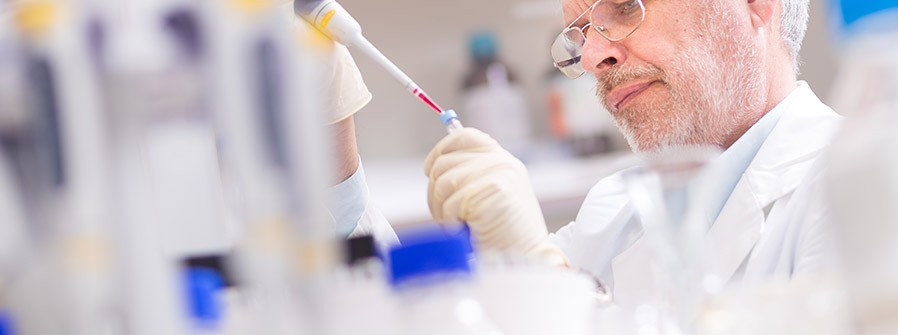Applicable Standards
- EP
- USP
- ISO
- AAMI
- ASTM
Services Summary
Nelson Labs is a leading provider of sterility assurance test services for medical device, pharmaceutical and tissue manufacturers for both sterile and nonsterile products. Most tests follow United States or European Pharmacopeia (USP or EP) and similar international standards. Medical device standards are also found in ISO, AAMI and ASTM guidance documents.
For convenience in finding routine quality control test services, the links below may contain test services not traditionally associated with formal sterility assurance programs but are aligned routine test services for many medical device and pharmaceutical products.
Bioburden tests determine the total number of viable microorganisms in or on a medical device, container or component. It is performed on any product that requires control and/or monitoring of bioburden counts, usually as part of a sterilization program. This test acts as an early warning system for possible production problems that could lead to inadequate sterilization. It is also used to calculate the necessary dose for effective radiation sterilization and to monitor product routinely as part of quarterly dose audits.
For clarification, product bioburden is intended for medical devices, containers and components. However, we also offer standard plate counts and microbial enumeration studies for powders, solutions and similar products where reconstitution and filtering may be required. Tissue products may also be assessed for bioburden.
Product Sterility and BI Sterility
Offering both traditional cleanroom and isolator product sterility tests, Nelson Labs can uniquely assist customers with the right test facility to meet your product sterility test needs. Cleanrooms are generally used for medical devices and some tissue products. Isolators are generally used for injectable and drug products that are aseptically processed and have a low or no tolerance for a sterility test failure.
Sterility tests must be validated by performing a Method Suitability test (Bacteriostasis/Fungistasis or B/F). For products tested in the isolator facility, a peroxide ingress verification must also be performed to assess the decontamination process associated with placing product into the isolator.
For some sterilization processes, a surrogate product or indicator may be used. Most commonly the use of a biological indicator (BI) or spore strip saves both test time and product cost. BI sterility tests at Nelson Labs are performed similar to product sterility but require a shorter incubation time and low volumes of media, allowing for a more cost effective sterility test to verify sterilization load processing.
Bacterial Endotoxins
Nelson Labs provides a Bacterial Endotoxins Test (BET), which is an in vitro assay for detection and quantitation of bacterial endotoxins, a component of the cell wall of Gram-negative bacteria. The BET is performed as part of the lot release testing for medical devices with direct or indirect contact to the cardiovascular system, lymphatic system or cerebrospinal fluid. Injectable pharmaceutical products must also be tested for bacterial endotoxins. Routine monitoring of water systems and incoming materials can help to ensure that the process does not contribute endotoxins to the final product.
Particulate Matter
Particulate Analysis testing includes procedures for removing, counting and sizing particulate contaminants on or in medical devices, stents, catheters, pharmaceuticals, IV bags and contact lens solutions. This test is useful for determining the amount of particulate matter coming from the manufacturing environment and use of the medical device or pharmaceutical product as well as identifying the potential sources of particulates. Nelson Laboratories performs both USP recommended methods: Light Obscuration (via the HIAC ROYCO particle counter) and traditional Microscopic methods.
Sterilant Residuals
Sterilization processes may leave sterilant residuals on product after the sterilization process. For processes such as Ethylene Oxide (EO), the assessment of sterilant residuals, aeration time and safe levels are required. Nelson Labs provides sterilant residual testing for EO, H202 and other common sterilization process residuals.
Microbial Identifications
Microbial or Organism Identification tests are used to characterize product bioburden and/or environmental bioburden and to identify organisms in sterility positives. For tissue products, a confirmation of the presence or absence of possible objectionable organisms can also be performed. Nelson Labs employs genotypic identifications using the MicroSeq system along with traditional Gram stain and other lab techniques.
Pharmaceutical Routine Test Services
Specific to pharmaceutical manufacturers, Nelson Labs provides routine USP and EP compendial tests for product sterility (isolator), bacterial endotoxin, particulate analysis, antibiotic potency assays (APA), antimicrobial preservative efficacy studies (APE) and microbial identification services. For nonsterile pharmaceutical products such as transdermal patches, we also offer routine microbial enumeration studies for objectionable organisms (USP 61/62).
Tissue Routine Test Services
Specific to tissue processing and preservation, Nelson Labs provides routine USP and EP compendial tests for microbial enumeration studies to assess objectionable organisms and standard bioburden tissue tests for general bioburden load assessments. Microbial identifications can also be performed to characterize the bioburden load and type. Unique issues arise with tissue products, specifically inhibition due to the use of antibiotics for preservation of tissue material, which must be validated with a suitability study prior to performing some routine tests.
If you have additional questions about :Sterility Assurance test services, or would like to consult with the experts at Nelson Labs, just send us a request or call us at +1 (801) 290-7500.



